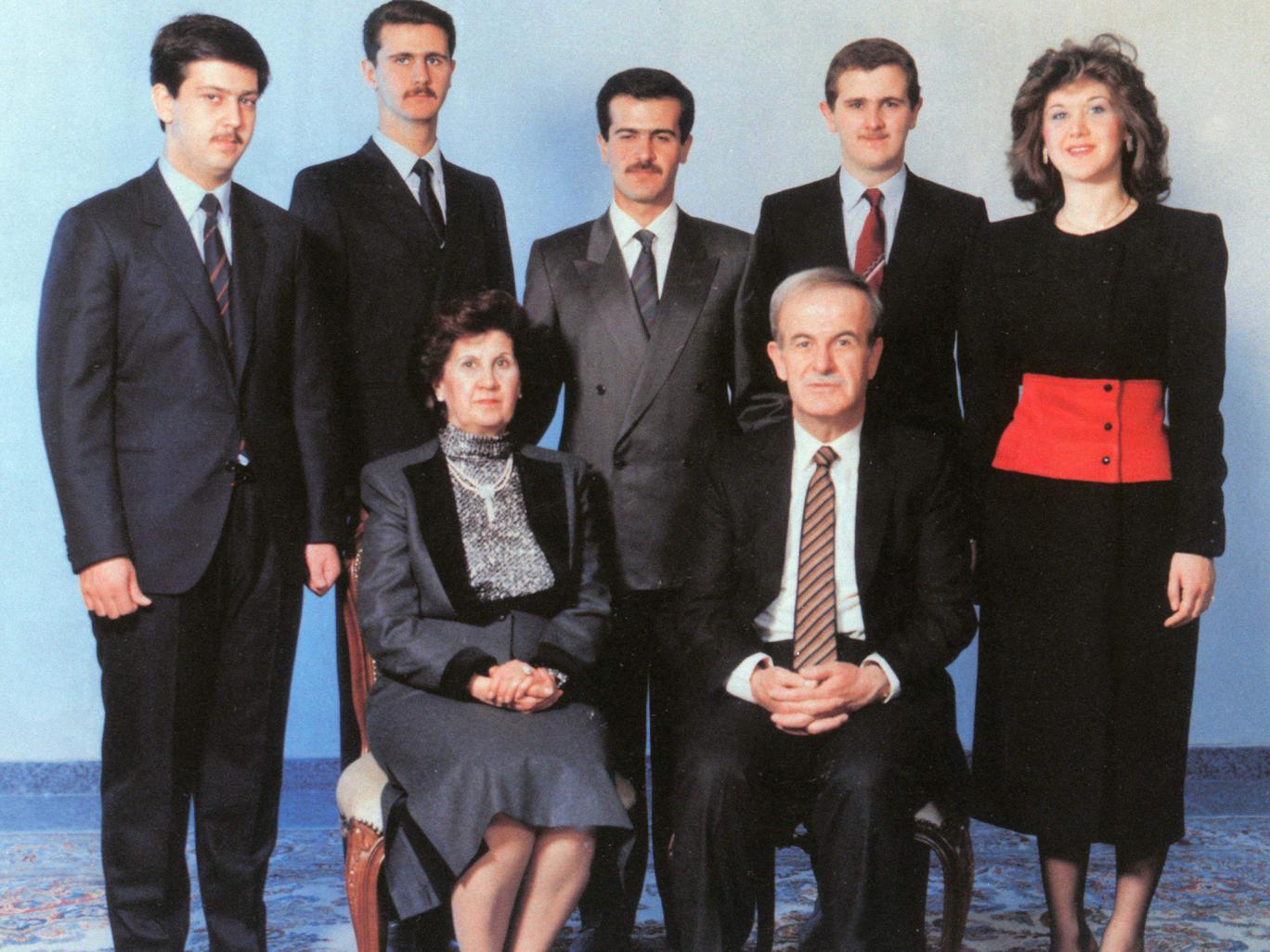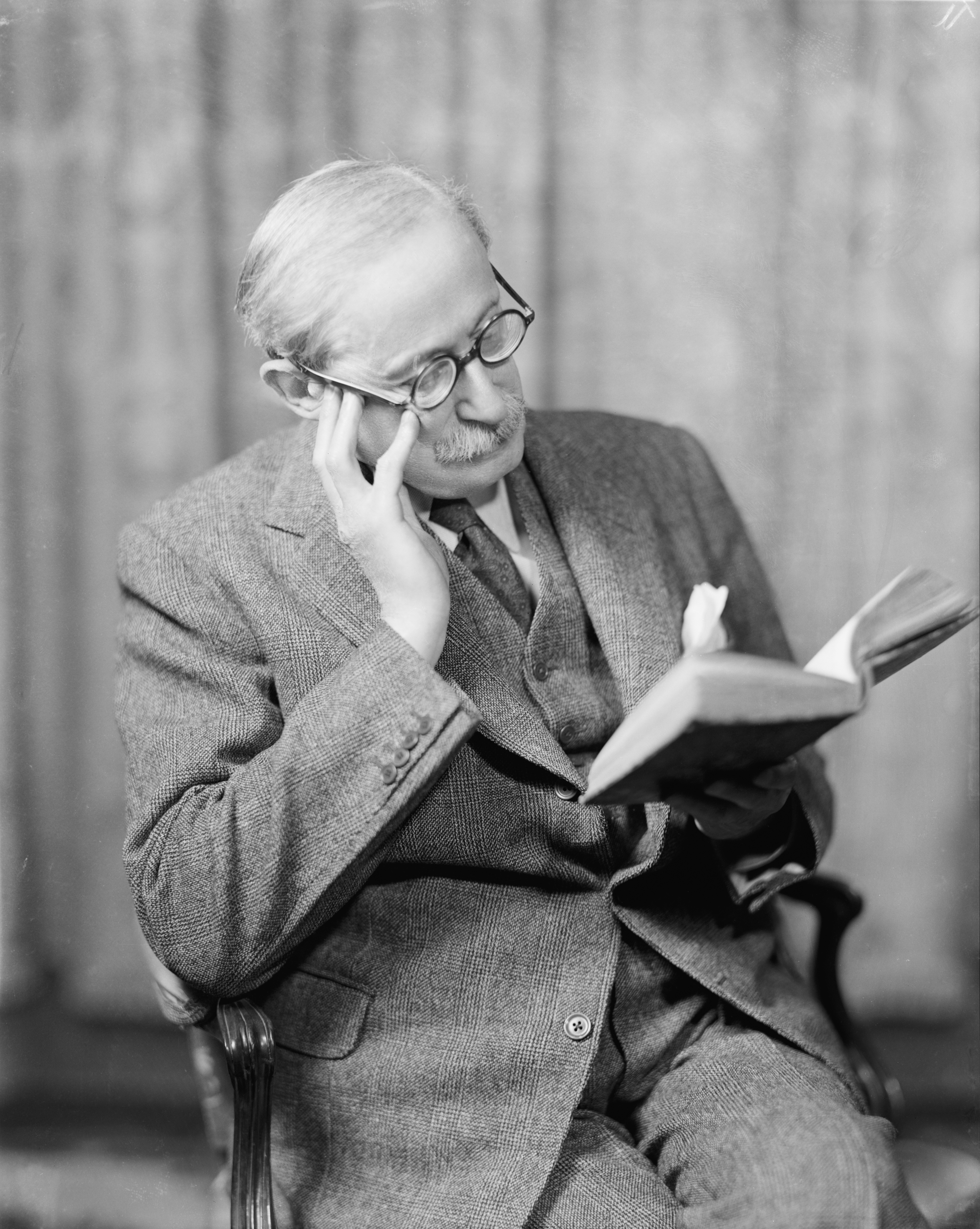|
Ali Sulayman Al-Assad
Ali ibn Sulayman al-Assad ( né al-Wahsh ; 1875 – 1963) was a Syrian farmer, tribal leader, and religious authority best known as the father of former Syrian President Hafez al-Assad and grandfather of current Syrian President Bashar al-Assad. Personal life Ali ibn Sulayman al-Wahsh was the son of Sulayman ibn Ahmed ibn Ibrahim ibn Sulayman al-Wahsh. The al-Assad family lived in Qardaha, an Alawite town in the mountainous Latakia Sanjak of the Ottoman Empire. They are members of the Kalbiyya tribe. Ali was known for protecting the weak, and in the 1920s had assisted refugees fleeing the former Aleppo province when France gave parts of it to Turkey. He was one of the few literate Alawites in his home village, and the only man in his village to subscribe to a newspaper. For his accomplishments, Ali was called ''al-Assad'' ( ar, الأسد, lit=the lion) by his fellow Alawites, and made the nickname his surname in 1927. Ali married 3 times and over three decades had eleven ... [...More Info...] [...Related Items...] OR: [Wikipedia] [Google] [Baidu] |
Al-Assad Family
The al-Assad family ( ar, عَائِلَة الْأَسَد '), also known as the Assad dynasty, has ruled Syria since General Hafez al-Assad became President of Syria in 1971 under the Ba'ath Party. After his death, in June 2000, he was succeeded by his son Bashar al-Assad. The Assads are originally from Qardaha, near Latakia, in north-west Syria. They are members of the minority Alawite sect and belong to the Kalbiyya tribe. The family name Assad goes back to 1927, when Ali Sulayman (1875–1963) changed his last name to al-Assad, Arabic for "the lion", possibly in connection with his social standing as a local mediator and his political activities. All members of the extended Assad family stem from Ali Sulayman and his second wife Naissa, who came from a village in the Syrian Coastal Mountains.Martin Stäheli: ''Die syrische Außenpolitik unter Hafiz Assad'', Franz Steiner Verlag, Stuttgart 2001, ; p. 40 Family connections continue to be important in Syrian politics. ... [...More Info...] [...Related Items...] OR: [Wikipedia] [Google] [Baidu] |
Léon Blum
André Léon Blum (; 9 April 1872 – 30 March 1950) was a French socialist politician and three-time Prime Minister. As a Jew, he was heavily influenced by the Dreyfus affair of the late 19th century. He was a disciple of French Socialist leader Jean Jaurès and after Jaurès' assassination in 1914, became his successor. Despite his relatively short tenures, his time in office was very influential: as Prime Minister in the left-wing Popular Front government in 1936–37, he provided a series of major economic and social reforms. Blum declared neutrality in the Spanish Civil War (1936–1939) to avoid the civil conflict spilling over into France itself. Once out of office in 1938, he denounced the appeasement of Germany. When Germany defeated France in 1940, he became a staunch opponent of Vichy France. Tried (but never judged) by the Vichy government on charges of treason, he was imprisoned in the Buchenwald concentration camp. After the war, he resumed a transitional lea ... [...More Info...] [...Related Items...] OR: [Wikipedia] [Google] [Baidu] |
1963 Deaths
Events January * January 1 – Bogle–Chandler case: Commonwealth Scientific and Industrial Research Organisation scientist Dr. Gilbert Bogle and Mrs. Margaret Chandler are found dead (presumed poisoned), in bushland near the Lane Cove River, Sydney, Australia. * January 2 – Vietnam War – Battle of Ap Bac: The Viet Cong win their first major victory. * January 9 – A total penumbral lunar eclipse is visible in the Americas, Europe, Africa, and Asia, and is the 56th lunar eclipse of Lunar Saros 114. Gamma has a value of −1.01282. It occurs on the night between Wednesday, January 9 and Thursday, January 10, 1963. * January 13 – 1963 Togolese coup d'état: A military coup in Togo results in the installation of coup leader Emmanuel Bodjollé as president. * January 17 – A last quarter moon occurs between the penumbral lunar eclipse and the annular solar eclipse, only 12 hours, 29 minutes after apogee. * January 19 – Soviet spy Gheorghe ... [...More Info...] [...Related Items...] OR: [Wikipedia] [Google] [Baidu] |
1875 Births
Events January–March * January 1 – The Midland Railway of England abolishes the Second Class passenger category, leaving First Class and Third Class. Other British railway companies follow Midland's lead during the rest of the year (Third Class is renamed Second Class in 1956). * January 5 – The Palais Garnier, one of the most famous opera houses in the world, is inaugurated in Paris. * January 12 – Guangxu Emperor, Guangxu becomes the 11th Qing Dynasty Emperor of China at the age of 3, in succession to his cousin. * January 14 – The newly proclaimed King Alfonso XII of Spain (Queen Isabella II's son) arrives in Spain to restore the monarchy during the Third Carlist War. * February 3 – Third Carlist War – Battle of Lácar: Carlist commander Torcuato Mendiri, Torcuato Mendíri secures a brilliant victory, when he surprises and routs a Government force under General Enrique Bargés at Lácar, east of Estella, nearly capturing newly cr ... [...More Info...] [...Related Items...] OR: [Wikipedia] [Google] [Baidu] |
Bashar Jaafari
Bashar Jaafari, also Ja'afari, ( ar, بشار الجعفري) (born April 14, 1956) is the former Permanent Representative of the Syrian Arab Republic to the United Nations Headquarters in New York City. His qualifications include a Bachelor of Arts and French literature, a Diploma of Higher Studies in translation and Arabization from the University of Damascus, a Diploma of International Political Relations from the International Institute of Public Administration, Diploma of Higher Studies in International Organization's Management and a Doctorate 3rd cycle in political science from the University of Sceaux, State Doctorate in political science from the Paris University and a State Doctorate in History of Islamic Civilization in South East Asia from the University of Sharif Hedayatullah. Diplomatic career Jaafari began his career in 1980 as a diplomat in the Syrian Foreign Ministry. He served as a diplomat in France, until 1983 to the embassy's secretary and adviser to the Pe ... [...More Info...] [...Related Items...] OR: [Wikipedia] [Google] [Baidu] |
Gérard Araud
Gérard Araud (born 20 February 1953) is a retired French diplomat who served as Ambassador of France to the United States from 2014 to 2019. He previously served as Director General for Political and Security Affairs of the Ministry of Foreign Affairs (2006–2009) and France's permanent representative to the United Nations (2009–2014). Early life and education Gérard Araud was born in Marseille.Stephanie GreenDon’t Call Him the Gay Ambassador: Gérard Araud, France’s Head Envoy to the U.S., Wants to Bring Diplomacy into the 21st Century, ''Vogue'', November 6, 2014 He holds engineering degrees from the École Polytechnique and École nationale de la statistique et de l'administration économique. Araud, who also graduated from the Institut d'études politiques de Paris, is an alumnus of the École nationale d'administration (class of 1982). Career Araud's first posting was at the embassy of France in Tel Aviv as First Secretary, from 1982 to 1984. He was then assigne ... [...More Info...] [...Related Items...] OR: [Wikipedia] [Google] [Baidu] |
Badawi Al-Jabal
Muhammad Sulayman al-Ahmad (1903– August 19, 1981) ( ar, محمد سليمان الأحمد), better known by his pen name Badawi al-Jabal ( ar, بدوي الجبل), was a Syrian poet known for his work in the neo-classical Arabic form. According to anthologist Salma Khadra Jayyusi, Badawi was "one of the greatest poets of the old school".Jayyusi, 1987, p. 61. Early life Badawi was born in 1903 to an Alawite family in the village of Difa, near al-Haffa, in the Latakia District.Moubayed, 2006, p. 542. His father, Sheikh Sulayman al-Ahmad, was a prominent Alawite imam from the Kalbiyya tribal confederation, and also served in the Damascus-based Arab Academy of Language in 1919.Seale, 1990, p. 19. Badawi developed an early understanding of the Qur'an and classic Arabic poems from his father.Auden, 2005, p. 1.Meismani, 1998, p. 121. Following the French occupation of Syria in the aftermath of World War I, Badawi joined the Al-Ali Revolt, which centered in the Syrian coast ... [...More Info...] [...Related Items...] OR: [Wikipedia] [Google] [Baidu] |
Salman Al-Murshid
Sulayman al-Murshid ( ar, سليمان المرشد; 1907 – 16 December 1946) was a Syrian Alawi religious figure, political leader, and the founder of al-Murshidyah religious sect. Early beginnings Sulayman al-Murshid was born as Sulayman Yunus () in the village of Jawbat Burghal, in the Latakia Sanjak. His emerging power worried both local notable Alawite families and the French authorities, who arranged to have him and some of his followers sent to Raqqa in exile in the mid-1920s. Yet when al-Murshid returned, he managed to patch up his problems with local notables, not least through strategic marriages. In 1937, he became a member of Parliament, and avoided the separatist approach advocated for by some among Syria's minority groups. Yet once it appeared that the French would not make good on their promise to grant Syria independence in 1936, al-Murshid began to call for separatism again. In 1943, he was elected again as a member of the central Syrian Parliament. In 19 ... [...More Info...] [...Related Items...] OR: [Wikipedia] [Google] [Baidu] |
Yazidis
Yazidis or Yezidis (; ku, ئێزیدی, translit=Êzidî) are a Kurmanji-speaking Endogamy, endogamous minority group who are indigenous to Kurdistan, a geographical region in Western Asia that includes parts of Iraq, Syria, Turkey and Iran. The majority of Yazidis remaining in the Middle East today live in Iraq, primarily in the Governorates of Iraq, governorates of Nineveh Governorate, Nineveh and Duhok Governorate, Duhok. There is a disagreement among scholars and in Yazidi circles on whether the Yazidi people are a distinct ethnoreligious group or a religious sub-group of the Kurds, an Iranian peoples, Iranic ethnic group. Yazidism is the ethnic religion of the Yazidi people and is Monotheism, monotheistic in nature, having roots in a Ancient Iranian religion, pre-Zoroastrian Iranic faith. Since the spread of Islam began with the early Muslim conquests of the 7th–8th centuries, Persecution of Yazidis, Yazidis have faced persecution by Arabs and later by Turkish people, ... [...More Info...] [...Related Items...] OR: [Wikipedia] [Google] [Baidu] |
Syrian Coastal Mountain Range
The Coastal Mountain Range ( ar, سلسلة الجبال الساحلية ''Silsilat al-Jibāl as-Sāḥilīyah'') also called Al-Anṣariyyah is a mountain range in northwestern Syria running north–south, parallel to the coastal plain.Federal Research Division, Library of Congress (2005"Country Profile: Syria"page 5 The mountains have an average width of , and their average peak elevation is just over with the highest peak, Nabi Yunis, reaching , east of Latakia. In the north the average height declines to , and to in the south. Name Classically, this range was known as the Bargylus; a name mentioned by Pliny the Elder. The el, Μπάργκυλος, Bargylus) had its roots in the name of an ancient city-kingdom called Barga most probably located in the vicinity of the mountains; it was a city of the Eblaite Empire in the third millennium BC, and then a vassal kingdom of the Hittites, who named the mountain range after Barga. In the medieval period were known as the Jabal Ba ... [...More Info...] [...Related Items...] OR: [Wikipedia] [Google] [Baidu] |




